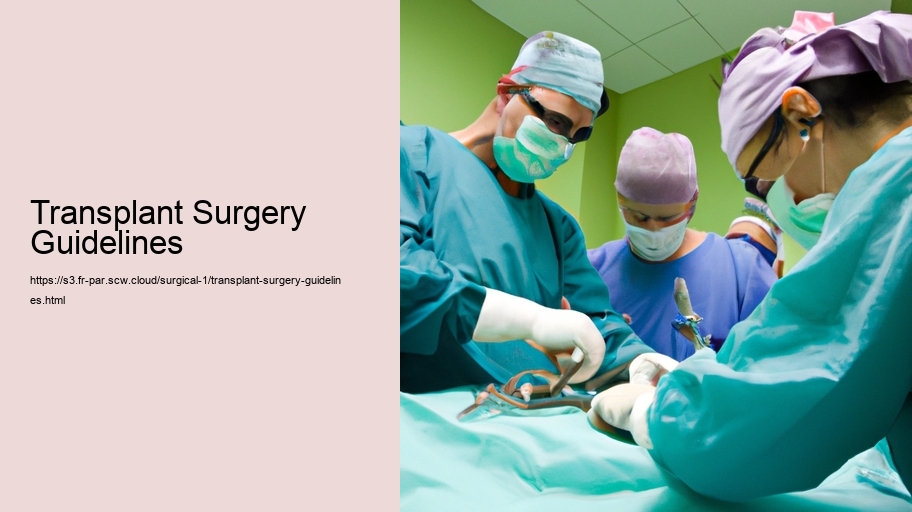Transplant surgery is a life-saving procedure that has revolutionized medicine, offering hope and renewed life to many who suffer from organ failure. However, the process is complex and requires meticulous planning, ethical considerations, and adherence to strict medical guidelines to ensure the safety and well-being of both donors and recipients. In this essay, we will discuss the essential transplant surgery guidelines that govern this delicate medical procedure.
Firstly, it is crucial to address the issue of donor and recipient matching. Transplant candidates are carefully evaluated on several medical and psychological parameters to ensure they are suitable to receive an organ. Factors such as blood type, tissue compatibility, organ size, and the medical urgency of the recipient are taken into account. The United Network for Organ Sharing (UNOS) in the United States, for instance, manages the national transplant waiting list and prioritizes organ allocation based on these factors, ensuring a fair and efficient distribution of organs.
Another critical aspect of transplant surgery guidelines is the consent process. Informed consent must be obtained from living donors, and they should be made fully aware of the risks and implications of the surgery. In the case of deceased donors, consent must be obtained from the next of kin or as per the donor's prior legal authorization, such as through organ donor registries.
Ethical guidelines also play a pivotal role in transplant surgery. It's important to ensure that organ donation is voluntary and free from coercion or monetary compensation. The process should be transparent and equitable, giving no preferential treatment based on race, gender, social status, or financial means. Transplant teams are bound by confidentiality and must respect the privacy and dignity of both donors and recipients.
Preoperative care is another crucial aspect of the guidelines. Recipients must be prepared for surgery, which includes psychological evaluation and counseling, nutritional optimization, and management of underlying health conditions to minimize the risk of complications. Similarly, living donors must undergo a thorough medical evaluation to ensure they are healthy enough to donate and that the donation will not significantly impact their health.
The surgical procedure itself must adhere to the highest standards of medical practice. Highly skilled and specialized transplant surgeons perform the surgery in well-equipped medical facilities that meet rigorous standards. The postoperative care is equally important, focusing on monitoring for signs of organ rejection, managing infections, and ensuring the recipient's immune system is appropriately suppressed to accept the new organ.
Aftercare is a lifelong commitment for transplant recipients. They must follow a strict regimen of immunosuppressive medications, undergo regular check-ups, and maintain a healthy lifestyle to protect the transplanted organ. Adherence to these post-transplant guidelines is essential for the long-term success of the transplant.
In conclusion, transplant surgery guidelines are comprehensive protocols that ensure the safety and effectiveness of organ transplantation. From donor and recipient matching to ethical considerations and postoperative care, these guidelines serve as a framework for managing the complex process of organ transplantation. By adhering to these guidelines, the medical community upholds the highest standards of care, ensuring that the precious gift of life given through organ donation is honored and utilized to its fullest potential, offering a second chance at life for many.
